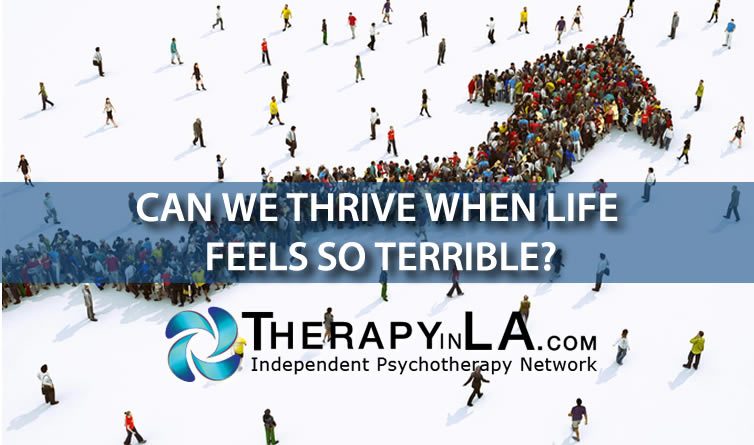CAN WE THRIVE WHEN LIFE FEELS SO TERRIBLE?
CAN WE THRIVE WHEN LIFE FEELS SO TERRIBLE?
A community website, The Mighty, provides information and support for people involving health issues. Since the COVID 19 pandemic began in March, it has surveyed more than 70,000 individuals to identify their experiences with the crisis. In September, the first three emotions people were experiencing were frustration, worry, and anger. The percentage of people identifying anger as one of their first emotions more than doubled from 20% in March to 45% in September (https://hbr.org/2020/10/how-to-thrive-when-everything-feels-terrible).
These kinds of negative emotions impact us all. When we observe people being rude it:
- Reduces our memory
- Reduces our performance
- Reduces our ability to process information.
We tend to withdraw, communicate less, and become less helpful to others. More aggressive thoughts happen more frequently, as can more aggressive actions.
A productive way does exist to resist these experiences. It’s called “thriving – the psychological state in which people experience a sense of both vitality and learning.” When “thriving”, people “are growing, developing, and energized, rather than feeling stagnated or depleted.” Even small amounts of thriving help people protect themselves from “distractions, stress, and negativity.”
How can we increase thriving?
- Reduce negativity. I’ve counseled many clients to be more thoughtful and selective about the information we digest, the media we attend to, the music we listen to, the people we spend time with, and the people we admire. So many news shows, for example, on so many networks (especially cable networks) have their own political agenda and select their reporting to support that agenda. This is often done in more sensational and intense ways, designed to enhance their ratings.
- Develop a neutral perspective. Anger, worry, and frustration distract us and cause us to think less clearly. By being more neutral, we can be less judgmental, less reactive, and able to evaluate problems more clearly. I’ve counseled clients to stay in the present and consider choices in the current situation, rather than assess past failures or worry about future scenarios.
- Focus on gratitude. It reduces stress, improves our mood, and contributes to progress towards our goals. It also attracts others and increases support we receive from others.
- Care for your well-being. Simple, but not simple practices to regularly do exercise, good nutrition, sleeping adequately (all covered in recent blogs). All of these practices strengthen our resilience.
- Emphasize relationships that are positive. Reduce your exposure and involvement with people who recurrently are negative, judgmental, and stuck on anger, frustration, or worry. Increase your time with people who share laughter, smiles, and an optimistic perspective.
Many therapy sessions in the last several months are focused on supporting and encouraging all these choices, at least in part. Please review some of the blogs and articles over the last few months for more suggestions and details.
Dr. Alan M. Solomon is a clinical psychologist in private practice in Torrance, CA. A member of the Independent Psychotherapy Network, he can be reached at 310 539-2772 or dralanms@gmail.com. Telehealth sessions by phone or video call are available.
Copyright 2020 by Alan M. Solomon, Ph.D.

